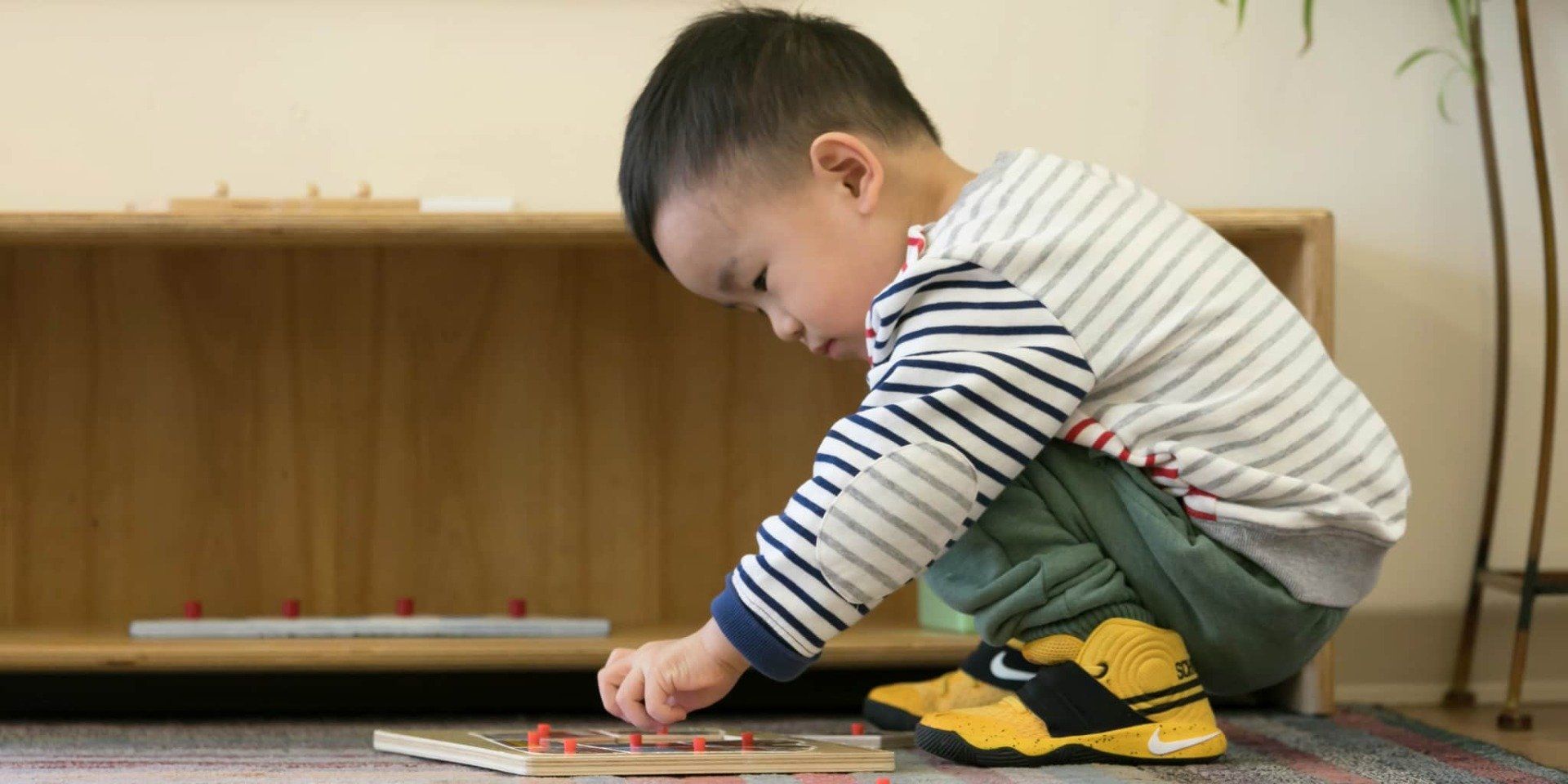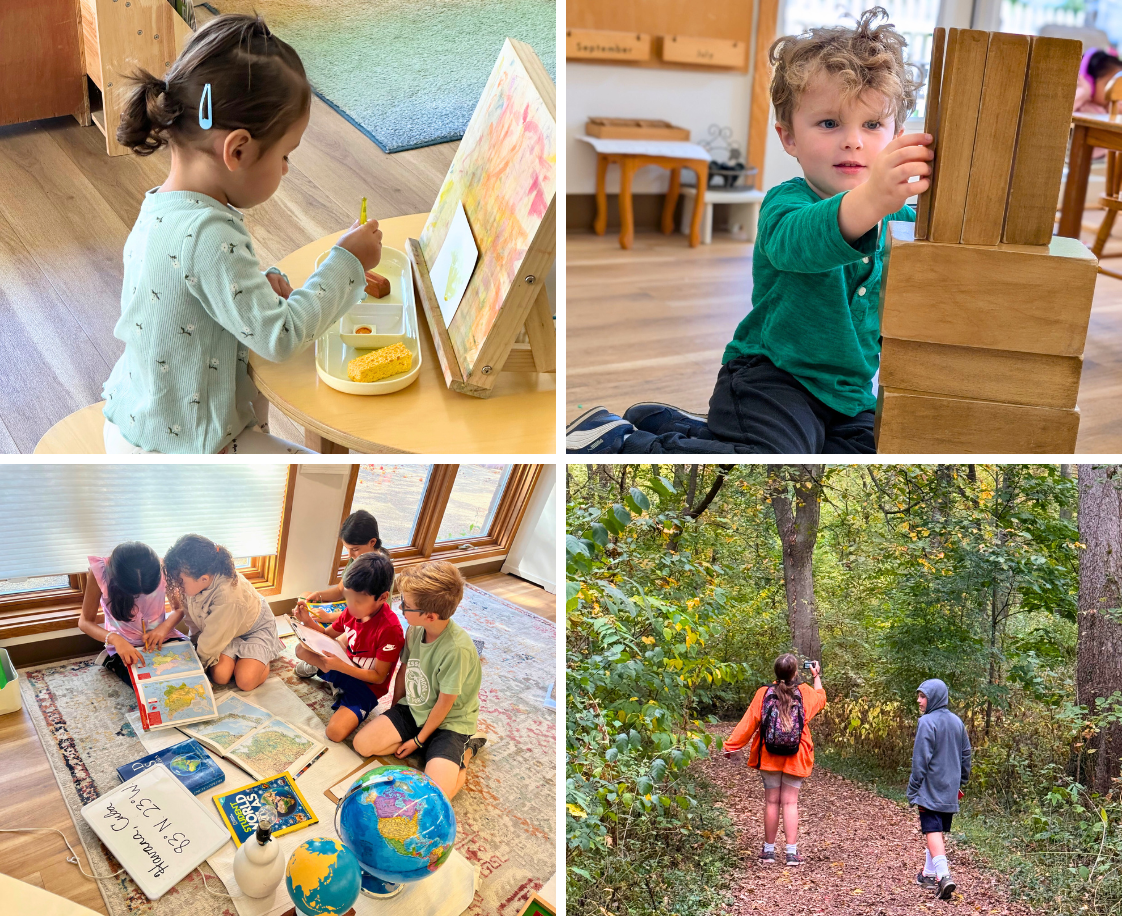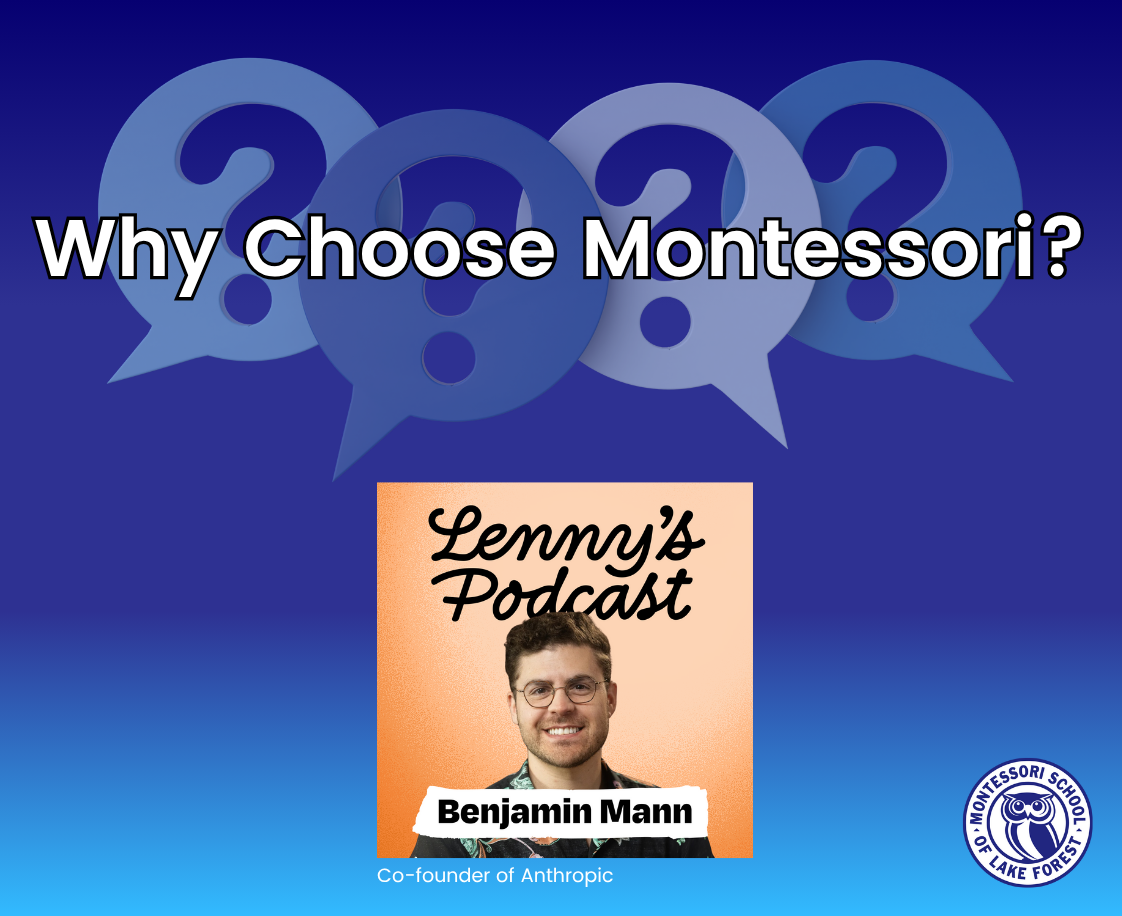By Kristin Caldwell, Toddler Directress at the Montessori School of Lake Forest
as featured in Daily North Shore on August 21, 2017
( https://jwcdaily.com/2017/08/21/authenticity-in-the-toddler-years/
)
 It seems that everywhere we turn these days, someone is extolling the virtues of “authenticity” . . . and giving advice on how to cultivate it in our relationships with loved ones, with colleagues, even with ourselves. As a Montessori teacher working with toddlers, I found myself wondering just what this buzzword may have to offer when it comes to thinking about how we relate to the very young child.
It seems that everywhere we turn these days, someone is extolling the virtues of “authenticity” . . . and giving advice on how to cultivate it in our relationships with loved ones, with colleagues, even with ourselves. As a Montessori teacher working with toddlers, I found myself wondering just what this buzzword may have to offer when it comes to thinking about how we relate to the very young child.
The Montessori method of education has as one of its cornerstones the idea of real-world activity. In observing the needs and desires of young children, Maria Montessori found that they show a distinct preference for purposeful work over make-believe play. Toddlers, especially, are very literal thinkers and eager participants in the daily tasks of taking care of the home or classroom. If given the opportunity and the materials necessary, a toddler child will happily wipe up a spill, sweep up crumbs, or help load the laundry. In a Montessori classroom, this is called the “work” of the children, and it is through tasks just like these that the young students gradually develop all manner of skills: fine motor coordination, concentration, organization, and independence to name a few. If you are sharing a household with a toddler currently (or perhaps have one as an occasional or frequent visitor to your home), you may consider adding a few items to your living space to make it more enjoyable for your young companion; a low hook on which to hang a jacket, a stool to reach the bathroom sink, a small basket of books on a low shelf in the living room. For the young child, these small modifications to the adult world are very meaningful, and send the message that they are valued members of the family (or neighborhood, or school community.) In this way, real-life activity and interaction bring authentic connection.
 Another way in which we can strive for authentic relationships with toddlers is through modeling and practicing real, honest communication. Toddlers can be fascinating, exasperating, delightful, and confounding people (all in the space of a morning, sometimes!) Their small bodies are host to big emotions, and the adults in their lives are tasked with remaining calm and providing a consistent and reasonable safe port in the toddler storm. Children of this age are just learning how to self-regulate their emotions, and the learning curve is steep; frustrations run high and disappointments are frequent. It can be tempting for adults to try and distract an upset toddler as a way of ending an emotional outburst, but at what cost? I know that as an adult, I don’t want to be “tricked” out of my sadness (or anger, or boredom) by the promise of a treat or a fun outing – I would much rather have my feelings acknowledged and supported by someone who cares– and in my classroom experience, so would toddlers. I think we do young children a great disservice when we ignore or gloss over their feelings with incorrect or insincere statements (“you’re okay, you don’t need to cry.”) Toddlers may be young, but they still deserve our empathy and understanding every bit as much as the other people in our lives. Fostering authentic communication is one of the greatest and far-reaching gifts we can give to the very young child.
Another way in which we can strive for authentic relationships with toddlers is through modeling and practicing real, honest communication. Toddlers can be fascinating, exasperating, delightful, and confounding people (all in the space of a morning, sometimes!) Their small bodies are host to big emotions, and the adults in their lives are tasked with remaining calm and providing a consistent and reasonable safe port in the toddler storm. Children of this age are just learning how to self-regulate their emotions, and the learning curve is steep; frustrations run high and disappointments are frequent. It can be tempting for adults to try and distract an upset toddler as a way of ending an emotional outburst, but at what cost? I know that as an adult, I don’t want to be “tricked” out of my sadness (or anger, or boredom) by the promise of a treat or a fun outing – I would much rather have my feelings acknowledged and supported by someone who cares– and in my classroom experience, so would toddlers. I think we do young children a great disservice when we ignore or gloss over their feelings with incorrect or insincere statements (“you’re okay, you don’t need to cry.”) Toddlers may be young, but they still deserve our empathy and understanding every bit as much as the other people in our lives. Fostering authentic communication is one of the greatest and far-reaching gifts we can give to the very young child.
My final bit of advice on developing an authentic relationship with a toddler is perhaps the simplest; make a real effort to put yourself in their shoes. One of the great joys and privileges of working with toddlers is the opportunity it affords to observe and emulate the young child’s effortless and beautiful ability to be truly present. Our adult lives are filled with distractions, time-crunches, multi-tasking and screen-time—and as a result, we are often oblivious to our current situation or state of mind, choosing instead to mentally jump ahead to the next item on our endless to-do list. Children, however, have much to teach us in this regard; they want nothing more than to fully experience the present moment, in all its richness. If we provide them with an environment that calls to their senses, with activities that allow for movement and experimentation, they will take full advantage of the opportunity to engage and the learning that results will be of the highest quality possible. Indeed, it will be the type of authentic education that aids the child in construction of the self.
The post Authenticity in the Toddler Years appeared first on Montessori School of Lake Forest.



